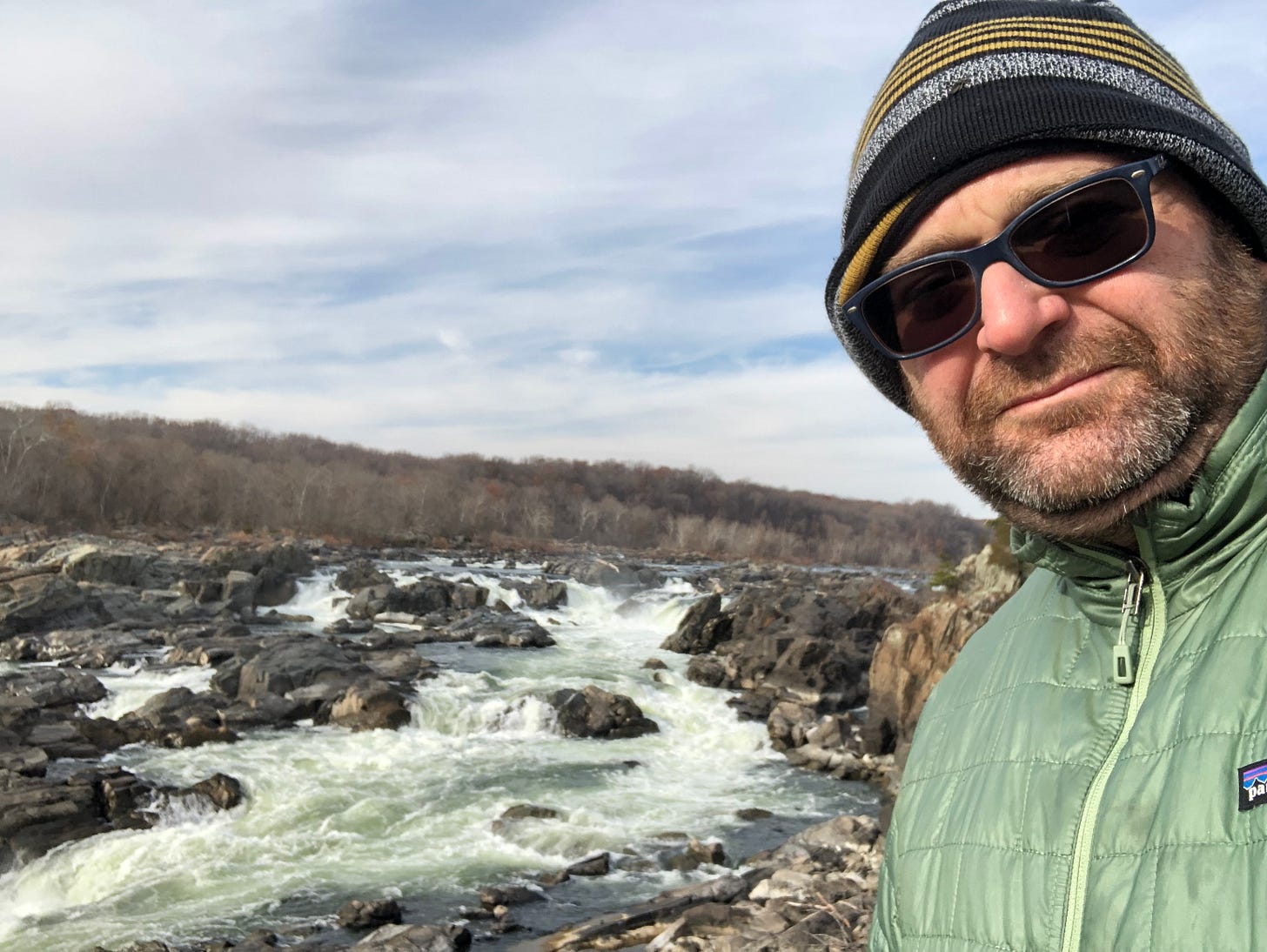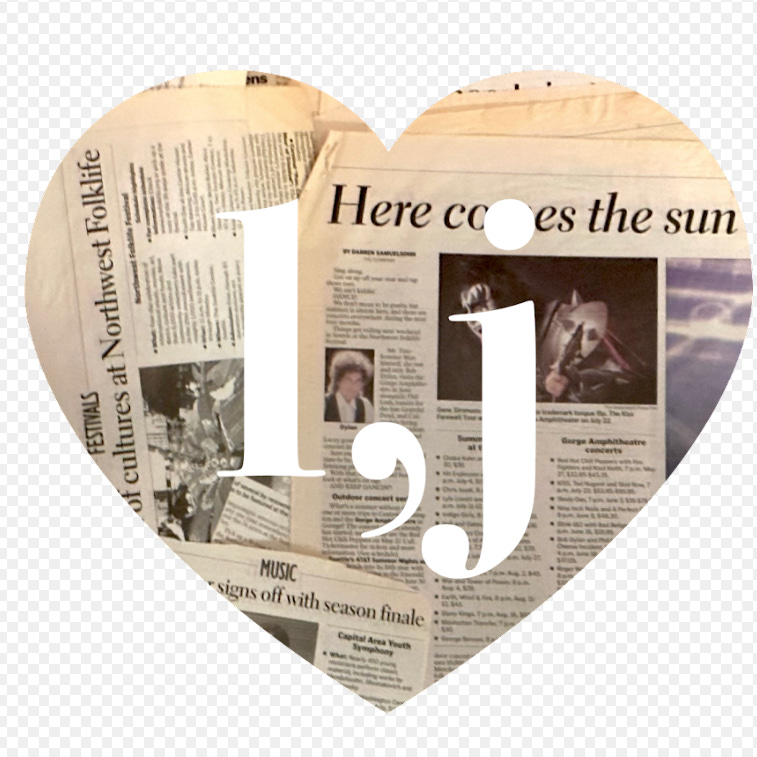A survival guide for your next job hunt
What I've learned over four months looking for work.
I’m Darren Samuelsohn, a veteran journalist who has been reporting and editing writers for 30+ years. You’re reading love, journalism, my Tuesday newsletter full of insights, interviews, ideas and inspiration.
Are you new here? Please sign up for free, and consider a paid subscription to help support my work and spread the journalism love. You can listen to ‘The love, journalism Show’ podcast here — new episodes on Saturdays. Occasional bonus posts too.
I didn’t set out last October to write a column about the best ways to navigate life after losing a job.
But I’m a journalist at heart and the things I have learned over these last four months since my time at Insider ended abruptly seem worth sharing considering just how many people are going through their own transitions amid an economic climate that can best be described in very scientific terms as poop.
Before I go any further, let me state the all-important caveat that I know everyone’s situation is different, including the most pressing matters around health insurance and securing a paycheck. I am lucky in both those regards in that I’m covered on the former through my spouse and I’ve saved wisely to help me weather a break from the latter.
That said, I’ve noticed some universal themes amid all the ups and downs of being unemployed and trying to figure out what’s next. I won’t sugarcoat the hard stuff. Job searches and the hiring process both take time, especially when they coincide with big holidays. But I’m also an optimist and can say I’ve found bright spots and opportunities go along with being unemployed, and I’m hoping my experiences can help even a smidgen for anyone traveling this road.
So here goes, and if you’ve got your own survival guide tips on how you’ve made it through a job change in journalism or any other field for that matter please leave a comment below, respond in the chat session or send me an email. I’m up for exploring this topic more in future posts.
Check ups: financial, health and otherwise
I’ve thought of this one like I was battening down the hatches before a storm.
Knowing there’d be some significant uncertainty ahead, I checked in right away with my nurse practitioner to let her know about the change in my job status. She was well aware of the challenges I’d navigated in recent years to create a more healthy lifestyle for myself amid the demands of daily deadline journalism. So it made for great reassurances and put me in the right state of mind to hear her reinforce my own desire to find work that made me happy and didn’t run counter to all the positive developments I had going on the eating, exercise and stress management fronts.
Also very important: Money.
I took seriously the fact I’d just lost my primary source of income, and that’s why I scheduled time early on to talk with a financial advisor who gave me much needed insight into where I stood with respect to my own career plans. It helped to see on the screen all the different projections about my retirement savings and how those figures could be used to come up with an absolute floor dollar figure in terms of earning an annual income that would keep on track to hit my goals while also paying my share of the household bills. Getting that information gave me confidence to know I didn’t need to take a higher-paying job that wouldn’t be personally satisfying, overly stressful or plain not fun.
I’ve also been thinking with a fixed-income mindset, which is motivating for things like going through bank statements to recalibrate my spending and saving strategies. It meant taking the opportunity to examine all the recurring charges and subscriptions that can accumulate over time. Sure, I couldn’t bring myself to cancel access to the NFL Sunday Ticket while Tua Tagovailoa and the Miami Dolphins showed so much promise midway through the football season. But knowing what all I was paying for did help me make some choices about which luxuries were really needed when I wasn’t earning a regular paycheck.
Be kind to yourself
It’s serious stuff no matter if you quit, get laid off, get fired or your employer goes belly up. Work is essential to things like where we live and who we spend big chunks of time with, not to mention the self confidence that comes from receiving a regular salary.
But it also made sense to stop and see the world.
I took long midday hikes and ventured into movie matinees (two thumbs up for ‘Living’). I played golf on weekdays when the temperature edged toward 50 degrees. I had long lunches and phone calls with ex-colleagues and friends where we plunged into the kinds of conversations that best happen when there’s both time and space. I even made it to South Florida twice to visit family. A close friend described my new lifestyle as a mini-retirement, which I found reassuring once I learned it is indeed a thing.
Getting away from the rigors of the 24-7 news cycle also meant myriad benefits on the rest and relaxation front that dovetailed well with the health stuff I mentioned above. And it allowed me to get some much needed perspective on my own priorities and helped me figure out a good answer to the question posed in the next section.
What do you really want to do when you grow up?
I got versions of this question every time I talked to a mentor, former colleague or prospective employer, and I waffled over my answer a good bit. I think that stemmed from the fact I’ve been both a reporter and an editor over the last 22+ years in Washington DC journalism, and I’m versatile enough to play any position in a newsroom the same way utility infielder Ben Zobrist helped the Cubs win the 2016 World Series.
I tried out several different approaches to help me navigate this particular question. And perhaps the best one came via a suggestion from a former editor who urged me to think ahead two years to what I wanted to be doing around Thanksgiving 2024, and then work my way backward in terms of trying to figure out how I’d get there.
Putting myself in the mindset of that time horizon made sense and helped give me a valuable benchmark to strategize from. My gut responded almost immediately to this question, and it told me it wanted to see a book published under my name. I’m still noodling, researching and drafting ideas around which book (or books) that is, but I’ve been thinking of this journey on Substack as a forcing mechanism toward completing something that’s a more than a hundred pages longer than your typical news article.
Treat the job search as an adventure
I’ve found the job search process itself to be super helpful in terms of testing out my own theories over what should come next.
Beyond just working to update my resume, I’ve come to relish the memo-writing assignments that so many job applications request. Each has forced me to think hard about how I’d tackle potential reporting beats, editing assignments and other functions inside an organization. I’ve seen them as opportunities to truly gauge my level of interest in these jobs and to brainstorm new ideas that can carry over no matter which role I may get lucky enough to secure.
I’ve also been learning new skills like producing a podcast and building a website. I had worked for so long at major institutions where the portfolio page happens almost automatically, and somehow that meant I never made an independent one for myself. While it was beyond intimidating before I got started, the process itself turned out to be pretty easy and within a day www.darrensamuelsohn.com was live and on the internet and looked pretty nifty in my very biased opinion.
In addition, organizing my best clips for the “My Work” tab became its own useful exercise. Not until everything was up on the website could I really see how my journalism had evolved and grown from year to year, which in turn helped me think about some of the other questions above like what I want to do next in my career.
Thinking outside the box
Reporting and editing are the two most obvious paths I saw at the start of this journey for seeking out a journalism job. But I found it beyond refreshing to start a dialogue about other options too, even if I knew some of them weren’t for me.
Having conversations with people in the journalism academia and training spaces lit a fire under me and generated all kinds of excitement and ideas about the notion of paying it forward to the next generation of journalists behind me.
I also found that just by opening the door a tiny bit to conversations about what it’s like in the PR and consulting and government spaces gave me the reassurance I needed to know that there were other alternatives if I ultimately decided to shift away from journalism. And just talking with many of these people helped me get a stronger personal perspective on just how many people who’ve been in journalism have successfully navigated themselves beyond the newsroom. They provided a helpful possible light at the end of the tunnel.
Get a PhD in the media industry
There’s a side benefit to being a free agent looking for work in journalism: access to different competing media outlets to see who’s doing what. Anyone looking for a job would agree it’s important to kick the tires on future employers and that means you get a platform to ask questions about business models, journalistic expectations, newsroom morale, strategic visions and org charts.
Speaking to plenty of people in this universe gave me valuable insights into the current state of the journalism industry that I hadn’t been privy to while working for any one company. It’s useful stuff when looking for work to know ahead of time which media organization is bracing for layoffs or restructuring its entire operation. It’s helped me understand as well the many different trend lines that journalists are grappling with, from advertising revenue fluctuations to what’s driving demand for newsletters and where Substack fits into everyone’s business models.












Thanks for this frank account of your journey, Darren. Let me know how I can be helpful. What are you looking for? If you want to check out a career in cleantech communications, I work with innovative solar, wind, lithium and other interesting companies — all of which are disrupting incumbent fossil fuel industries with clean energy technology. It’s a fun way to work on climate from within the private sector.